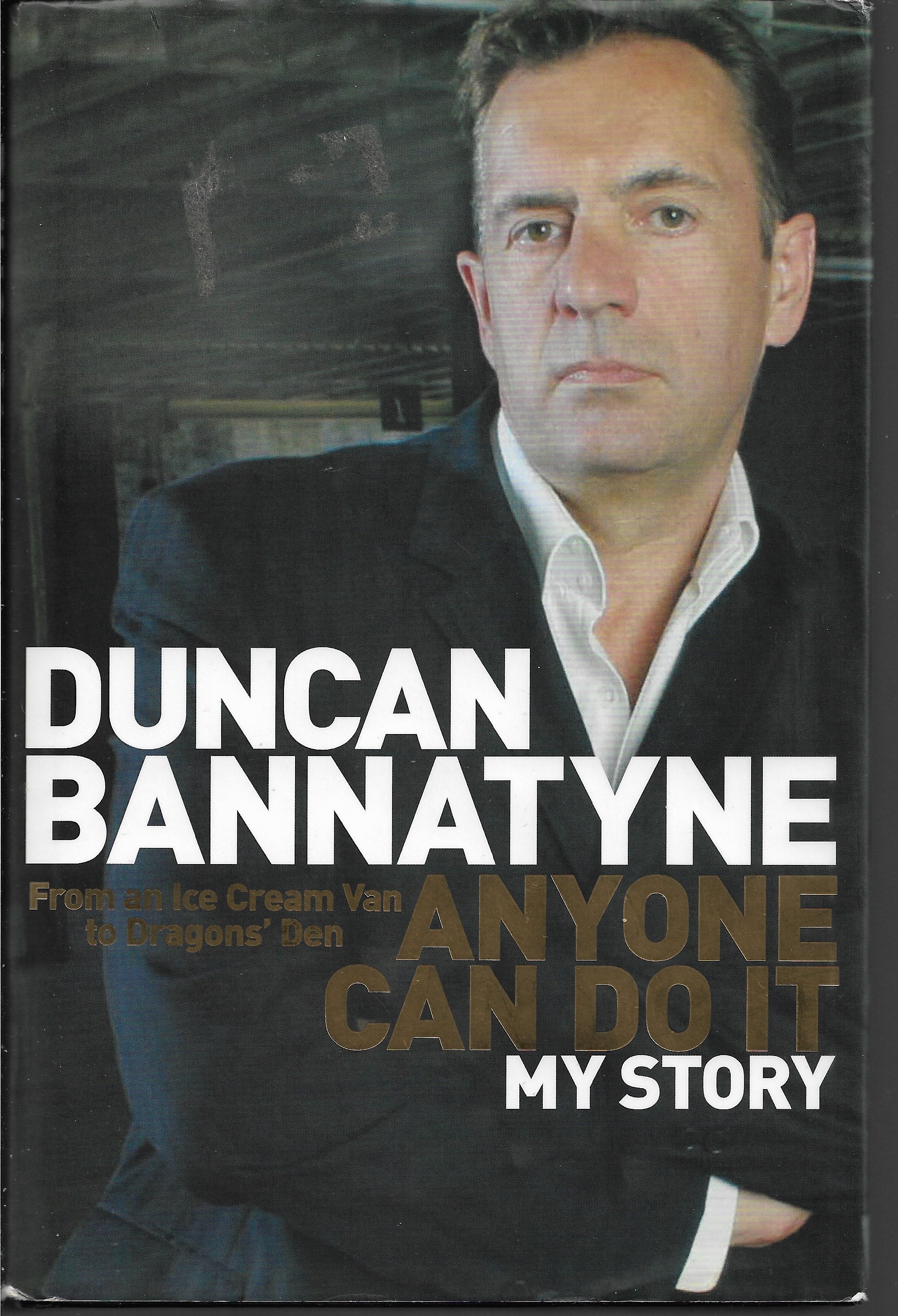Book Review: Anyone Can Do It by Duncan Bannatyne
@VictorFrankenstein (205)
United Kingdom
September 2, 2023 5:17pm CST
Being a person of great ambition but modest achievements, I sometimes like to read biographies and autobiographies of people who've achieved a much higher level of success than me. I read them for inspiration and to try to understand the mental habits that make people successful. I first read Duncan Bannatyne's autobiography, "Anyone Can Do It", about ten years ago, so I decided it was about time I re-read it.
Duncan Bannatyne is one of the most famous entrepreneurs in the United Kingdom, although people outside the UK probably won't know his name. How he became famous in Britain is that for years he was on the panel of a TV programme called "Dragon's Den", in which established business people listen to entrepreneurs pitch their ideas before deciding whether or not to invest in them.
Bannatyne is particularly interesting to me, because he came from quite a humble background. Born in Glasgow in 1949, he was part of a fairly large working-class family. At that time, only a few years after World War Two, there was a serious housing shortage in Glasgow, and the Bannatyne family lived in one room of a large house that they had to share with several other families.
Growing up, he knew a fair amount of hardship. His parents couldn't afford to buy the children ice cream very often, and when he felt left out when he went to a high school where most of the other kids had bicycles, but he didn't. This led to Bannatyne first showing some enterprising spirit, when he decided to earn the money to buy a bike by getting a paper round. The owner of the paper shop didn't have a paper round to offer him, so Bannatyne went from door to door asking people if they wanted their paper delivring, till he had a list of 100 potential customers to offer the shop-keeper. He promised himself that when he grew up, he'd earn enough money so his own children wouldn't need to go without things like ice cream and bikes.
Bannatyne wasn't stupid, but he was a bit of a misfit at school and left without qualifications. There weren't many job opportunities in Glasgow, and he was desparate to see something of the wider world, so he joined the Royal Navy as a Stoker (working in the engine room). Eventually being posted to an aircraft carrier, he got his chance to travel, but eventually he became disontented. This was partly due to a grudge that developed between him and a superior officer, and Bannatyne decided he wanted to leave the Navy. The problem was, he'd made the mistake of signing a twelve year contract. He solved this dilemma by assaulting the officer who had been causing him problems - this lead to a court martial, several months in a tough military prison, and a dishonourable discharge. But at least he was free to find his way in civilian life.
After going on a training course to be a mechanic, Bannatyne spent a while moving from one repair job to another, before getting fed up again and moving to the island of Jersey. There he spent a big part of the 70s making a modest living doing a variety of casual jobs, including bar keeping, selling ice cream and working as a deck chair attendant, and spending his spare time surfing and partying with a circle of dropout friends that he acquired, including his first wife. He describes this as a happy period in his book, although he didn't make any progress towards achieving his dreams.
After a few years, the couple moved to the north east of England, where they initially worked in a bakery, before Bannatyne spotted a second-hand ice cream van in a car auction and realised that this could be a viable business for him. Re-investing the profits from his first ice cream van, he bought more and employed people to operate them, until he had a substantial business going. This became the basis of his future success, as he moved into building and operating care homes, and later into a range of other ventures, such as running health clubs and property development.
Bannatyne describes each step of his business journey with maximum clarity, and also takes in his charitable work, including time spent in Romania helping orphans there, and the failure of his first marriage. But my favourite parts are where he's describing his business activities, even on those few occasions when he failed - one chapter is titled "How To Lose A Million". He spells out the lessons learned from each business venture, and he's quite open about the fact that he's not a genius, he's not well-educated, he was never the first to do anything - he just decided to do it, including taking big risks when necessary. The first line of his introduction says: "Making £100 million is so easy anyone can do it."
Having read this book twice now, I'm not convinced that it's easy, but I'm at least convinced that anyone can do it - if they're willing to do the work and take the necessary calculated risks.
Apart from being a decent autobiography, i would describe this as one of the best business books I've ever read.
1 person likes this
1 response
@RasmaSandra (74146)
• Daytona Beach, Florida
3 Sep
I know that at this point in my life, that part of business is behind me but if I was a lot younger then his books would be of interest to me,
1 person likes this






